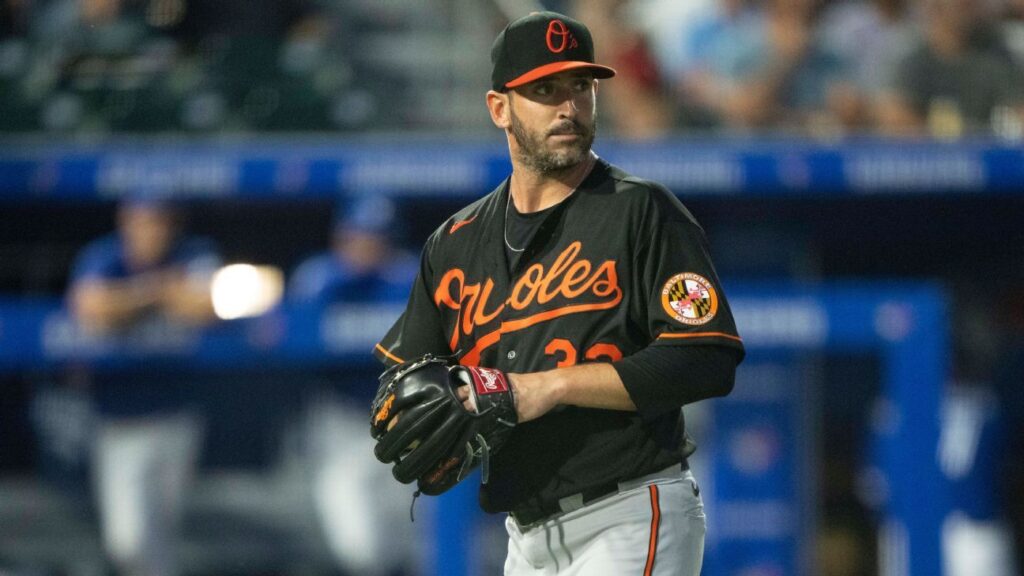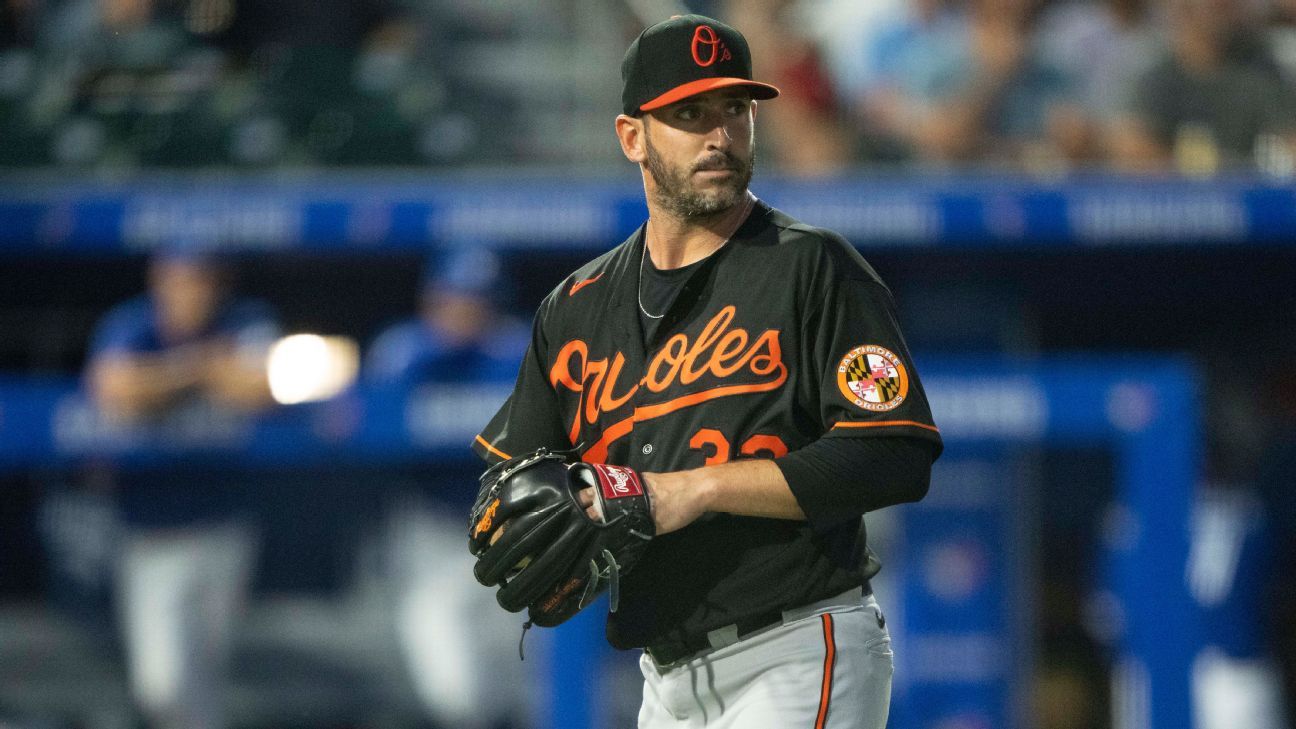MLB bans Harvey 60 games for oxy distribution
Matt Harvey’s admission of distributing oxycodone came during the trial of Eric Kay, who was ultimately found to be responsible for…


Matt Harvey, the veteran starting pitcher who has struggled to replicate his early-career stardom with the New York Mets, was handed a 60-game suspension on Tuesday for distributing a prohibited “drug of abuse” and thus violating Major League Baseball’s drug program.
Harvey, 33, is on a minor league contract with the Baltimore Orioles and is at the team’s extended spring training facility in Sarasota, Florida. His suspension is retroactive to April 29 and is the result of a negotiated settlement that will allow minor league games to count toward the punishment, an industry source told ESPN.
Harvey’s suspension is tied to his testimony in the February trial of former Los Angeles Angels communications director Eric Kay, who faces a minimum 20-year prison sentence related to the sudden death of pitcher Tyler Skaggs. Harvey acknowledged while under immunity from criminal conviction to being a cocaine and oxycodone user and occasionally providing Skaggs with oxycodone pills when he played for the Angels in 2019.
Skaggs was found dead in his Southlake, Texas, hotel room on the morning of July 1, 2019, after asphyxiating on his own vomit. A medical examiner later ruled that Skaggs had fentanyl, oxycodone and alcohol in his system. At the conclusion of an eight-day trial in Fort Worth, Texas, a federal grand jury found Kay guilty on two felony counts, agreeing with the U.S. government that he distributed the deadly drug fentanyl and caused Skaggs’ death.
Sentencing is scheduled for June 28.
Harvey was among five former Angels players who admitted during the trial to receiving illegal opioids from Kay, along with C.J. Cron, Cam Bedrosian, Mike Morin and Blake Parker. But those players, who also received immunity, testified only to their own opioid use and, unlike Harvey, did not admit to distributing drugs to someone else.
Those players would not face suspension under MLB’s drug policy unless they previously violated the policy regarding drugs of abuse. Unlike players caught using performance-enhancing drugs, players using drugs of abuse like opioids or cocaine are referred to an evaluation treatment board for their first offense and the violation is not made public.
Harvey told federal prosecutors that he had a drug source on the East Coast and occasionally obtained fentanyl pills for Skaggs through that source. He added that he shared “three, maybe four” pink pills with Skaggs in June 2019, though he didn’t remember if they were oxycodone or Percocet.
Harvey was a budding star for the Mets early in his career, finishing fourth in National League Cy Young Award voting as a 24-year-old in 2013. After Tommy John surgery, he helped pitch the Mets into the World Series in 2015.
He has struggled mightily since, however, posting a 5.92 ERA in 539⅓ innings while bouncing around with the Mets, Angels, Orioles, Cincinnati Reds and Kansas City Royals from 2016 to 2021.
Harvey went 6-14 with a 6.27 ERA in 28 starts for an Orioles team that lost 110 games last year, then returned to the team on a minor league deal that would pay him $1 million in the major leagues on April 8.
“We support all aspects of MLB’s joint drug prevention and treatment program and their ruling in this particular case,” Orioles general manager Mike Elias said in a statement. “I am glad that Matt now has the opportunity to put this part of his past behind him and pursue another shot with our organization after serving his suspension.”
Harvey, who was on the injured list and thus not with the team on the road on July 1, 2019, said he threw away his remaining oxycodone pills when he found out Skaggs died because he “wanted absolutely nothing to do with that anymore.”
Asked if he ever warned Skaggs to be careful, Harvey said in court: “Looking back, I wish I had. In baseball, you do everything you can to stay on the field. At the time, I felt as a teammate I was just helping him get through whatever he needed to get through.”
ESPN’s T.J. Quinn contributed to this report.




